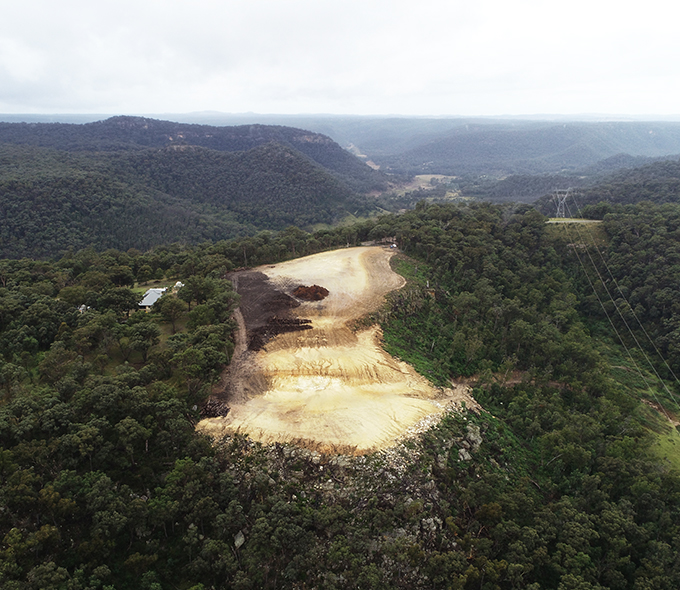Historic fine following unauthorised land clearing
A landowner has been fined $135,000, and ordered to pay prosecutor's costs, after clearing over five hectares of native vegetation on their property without authorisation in Canyonleigh, in the Southern Highlands.
The NSW Land and Environment Court heard the landowner began clearing native vegetation on their property in 2 stages between July 2021 and August 2022.
The landowner continued to clear even after Wingecarribee Shire Council served them with a Development Control Order in August 2021 and the Department of Planning and Environment served them with a Stop Work Order in April 2022.
Unauthorised clearing of native vegetation in regulated rural areas is an offence under section 60N of the Local Land Services Act 2013. In this case, the property is in a 'regulated rural area' and the vegetation on the property was 'native vegetation'.
The cleared land was home to trees more than 200 years old as well as 54 species of native trees, plants, shrubs and grasses. The trees cleared included food tree species for the endangered koala, and habitat for the vulnerable gang gang cockatoo and yellow-bellied glider.
The native vegetation in the area was 'high quality' as there had been no clearing in the area since 1913.
His Honour Chief Justice Preston found the clearing had 'directly and likely substantially reduced the biodiversity value of the area and the habitat provision for wildlife'.
The landowner was convicted of an offence under section 60N of the Local Land Services Act 2013, was fined $135,000 and was also ordered to pay the prosecutor's costs.
This was the first occasion that the NSW Land and Environment Court had sentenced a person for this offence.
Quotes attributable to Ingrid Emery, Executive Director Regional Delivery Biodiversity, Conservation and Science:
'This is a significant outcome which should serve as a reminder to others that there are rules about clearing native vegetation on regulated land, and that those who intend to clear without authorisation will face substantial penalties.
'The landowner was aware that their actions were not permitted and continued to destroy out native flora, causing significant impacts on the biodiversity in the region.
'I would like to thank all those involved in investigating and bringing this matter before the court.'
Images available here: Dropbox
